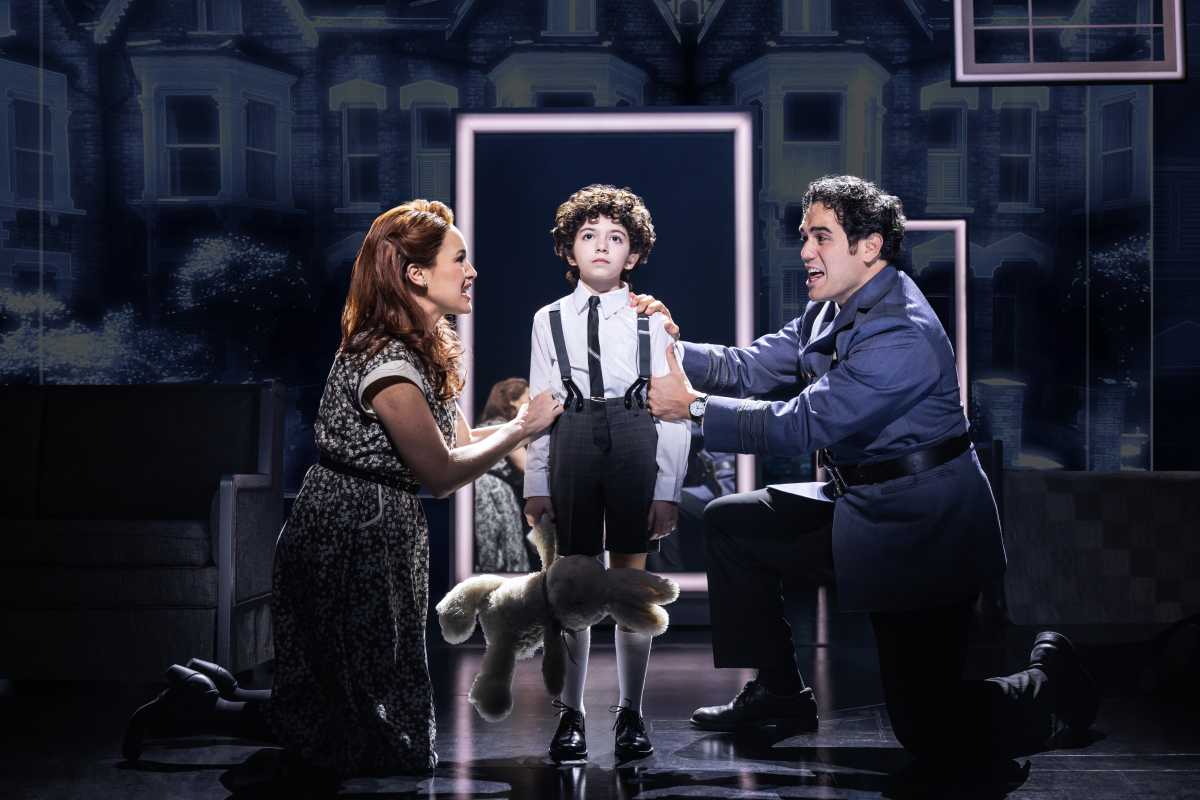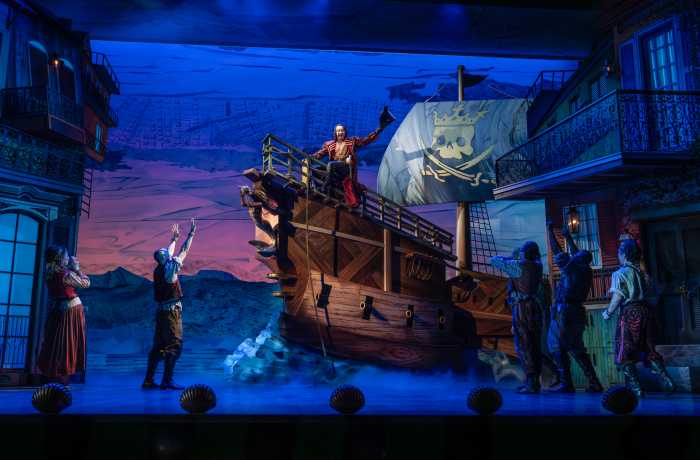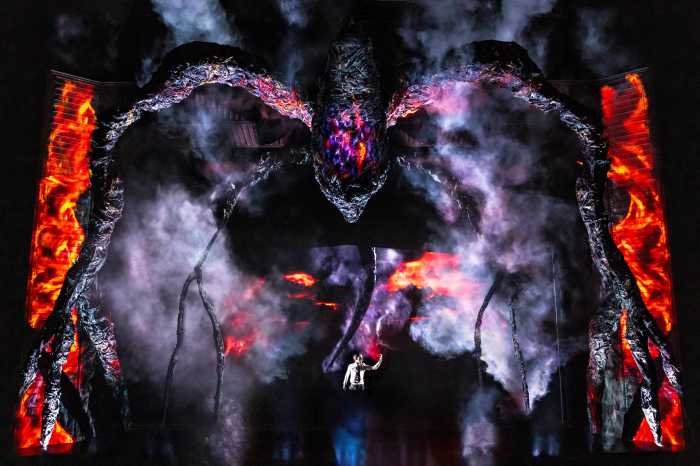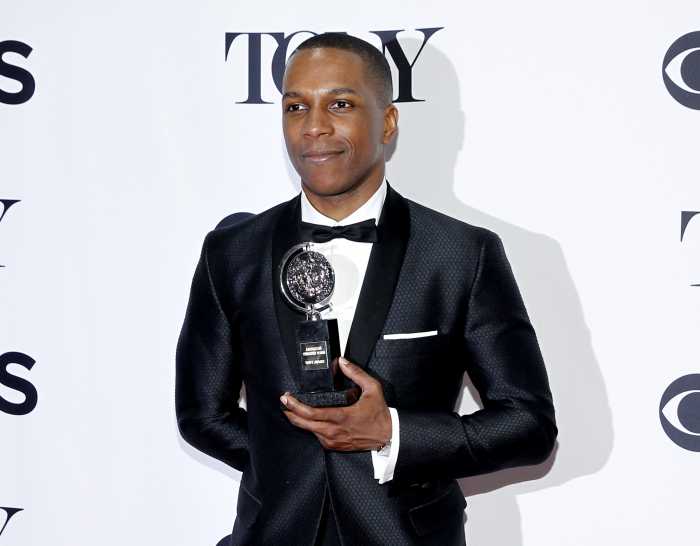Looking over the notes I took while attending the supercharged new Broadway revival of “The Who’s Tommy,” I appear to have written (in terrible handwriting, of course) the word “thrilling” about 20 times – including at least four times during the breathtaking opening sequence alone. I also wrote “exhilarating” quite a few times. Need I say more?
We could spend much time and energy debating the meaning, symbolism, and historical and contemporary significance of “Tommy,” the Who’s groundbreaking 1969 double album about a “deaf, dumb and blind boy” who somehow becomes a pinball wizard and later a messianic leader and whether and how it can be presented visually on film or stage in such a way that it enhances and does not detract from the album’s underlying power and appeal.
Just over 30 years ago, the original Broadway production of “The Who’s Tommy” premiered in a high-tech, high-energy production directed by Des McAnuff that melded rock music and visual technology in unprecedented ways, including a mostly wordless prologue that depicted the initial meeting of Tommy’s parents in London at the beginning of World War II, his father’s capture after parachuting out of an airplane, and Tommy’s birth.
The original Broadway cast included Michael Cerveris, Sherie Rene Scott, Alice Ripley, Norm Lewis and Christian Hoff. (I saw the original production at the age of 11 and vividly remember climbing up the winding staircase to the balcony of the St. James Theatre.)
In 2013, McAnuff remounted “Tommy” at Ontario’s Stratford Festival in what appeared to be a first step towards a Broadway revival. It was essentially a replica of the original Broadway production with some digital enhancements. (I saw it – and then ditched a Shakespeare play so I could see it again.)
By comparison, while the Broadway revival (once again directed by McAnuff) has the same sensory overload feel of the original production (which is no small accomplishment), it is technically a new production, with different designs, more ensemble movement, and an emphasis on politics, depicting the adult Tommy in a futuristic, threatening environment where he is surrounded by militant guards.
While it would have been interesting to give someone else free reign to fully reinvent “Tommy” as a stage musical (perhaps making it more abstract or more rooted in a concert format), McAnuff’s 2.0 (or 3.0 if you count the Stratford production) version of “Tommy” remains precise, inventive, fresh, and, yes indeed, thrilling.
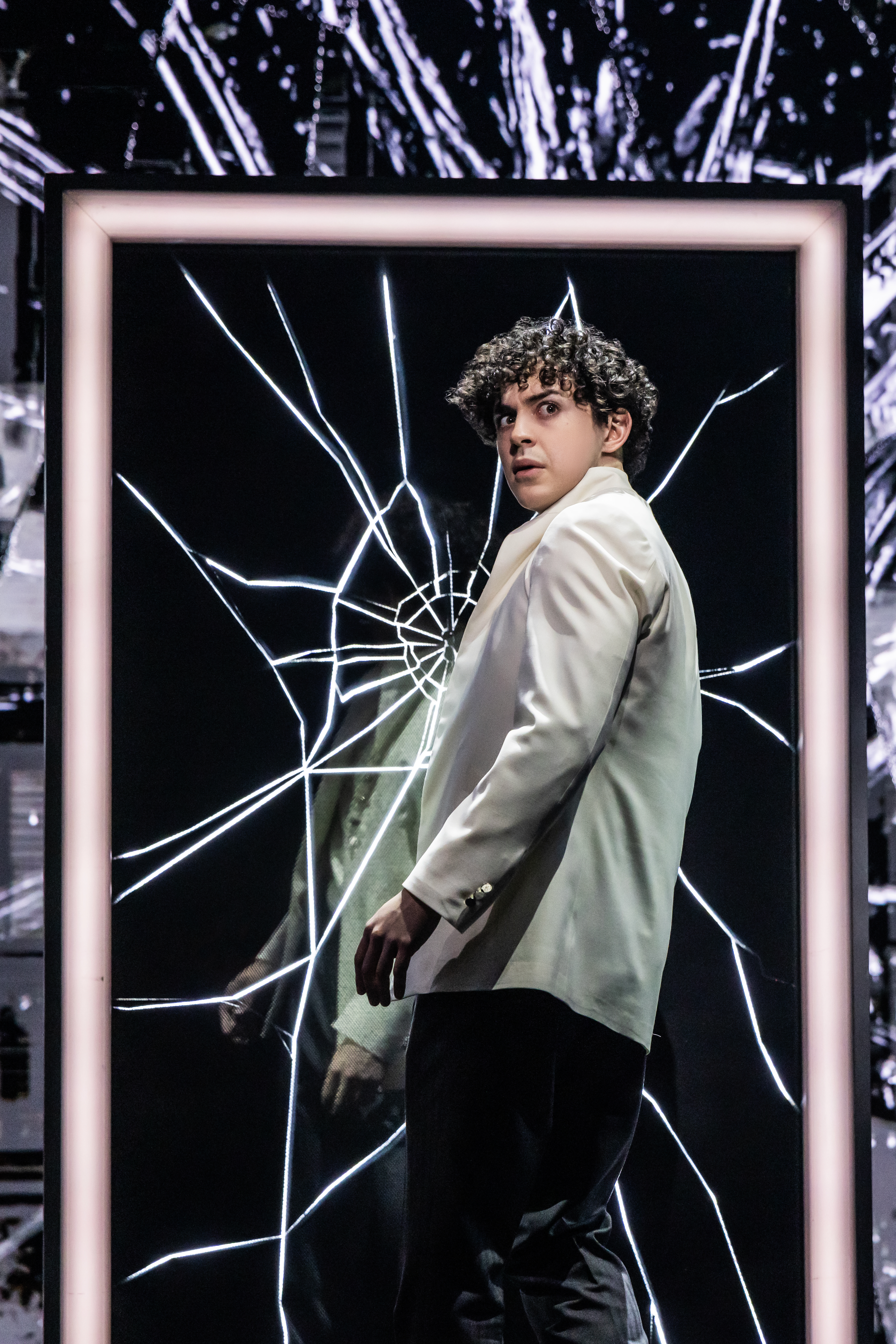
Making his Broadway debut as Tommy is Ali Louis Bourzgui, a 24-year-old Moroccan-American performer, who exerts otherworldly mystery, charisma, and a shining voice. As Captain Walker, Tommy’s father, Adam Jacobs (who originated the title role in “Aladdin” a decade ago) sings well but paints the character too broadly as a well-meaning but hapless idiot. By comparison, Alison Luff underplays Mrs. Walker, Tommy’s mother, while still expressing hurt and uncertainty. John Ambrosino and Bobby Conte try to make Uncle Ernie and Cousin Kevin, respectively, into damaged, lonely individuals rather than just nightmarish, abusive babysitters.
However, what is most critical is the incredible sense of cohesion among the ensemble cast, which comes together, and even locks arms, at the finale for an ecstatic reprise of “Listening to You.”
“Tommy” was ahead of its time when it first played Broadway, predating the rebirth of the rock musical and the ascendency of jukebox musicals based on preexisting pop hits. Three decades ago, it was bold, jarring, and controversial. Today, it might come off as Baby Boomer nostalgia and could easily get lost among the numerous other shows opening this spring. But how many other new shows can equal the nonstop, trippy, sensory rollercoaster experience that is “The Who’s Tommy”?
Nederlander Theatre, 208 W. 41st St., tommythemusical.com.
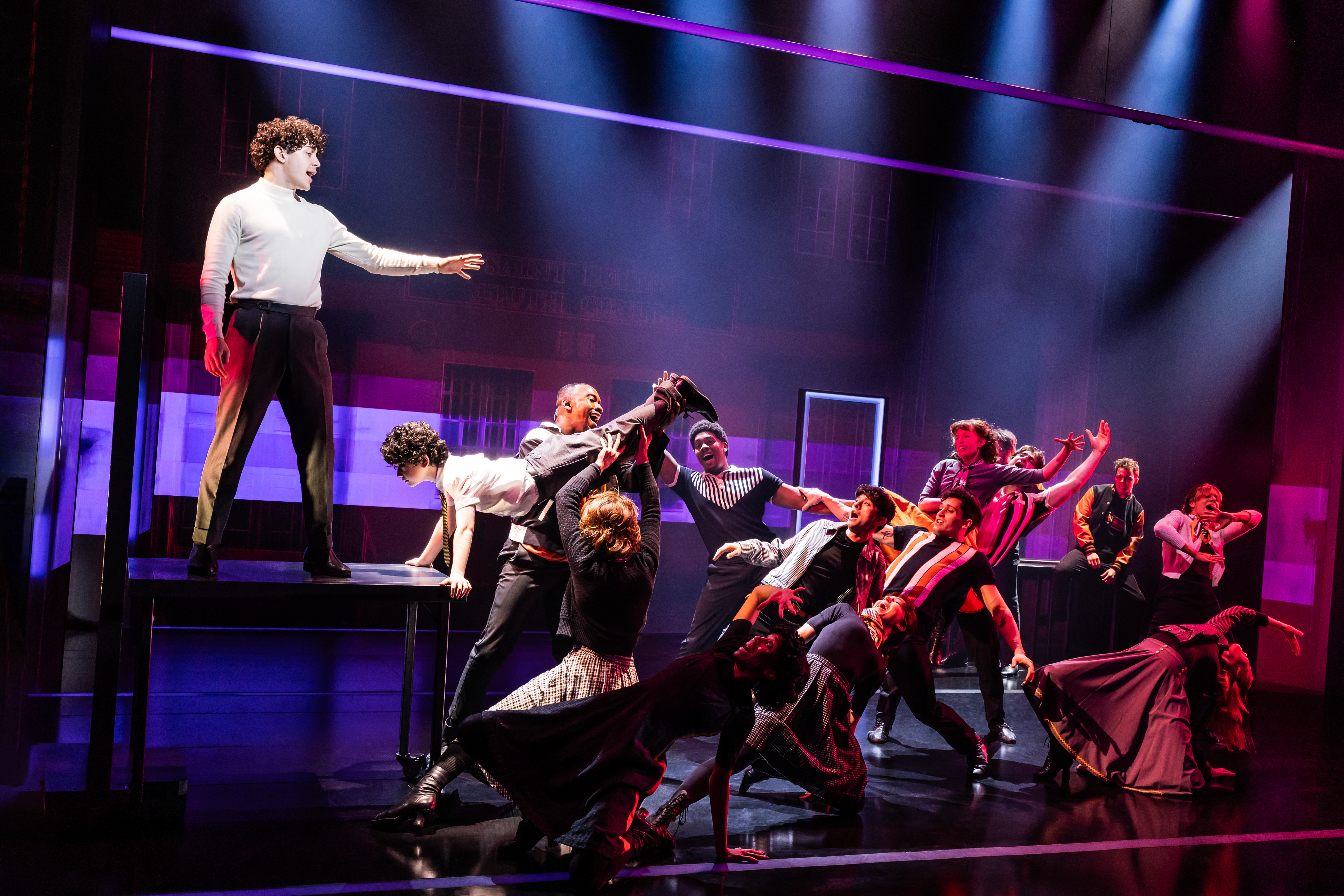
Read more: Carnegie Hall Hosts Paco de Lucía Festival



